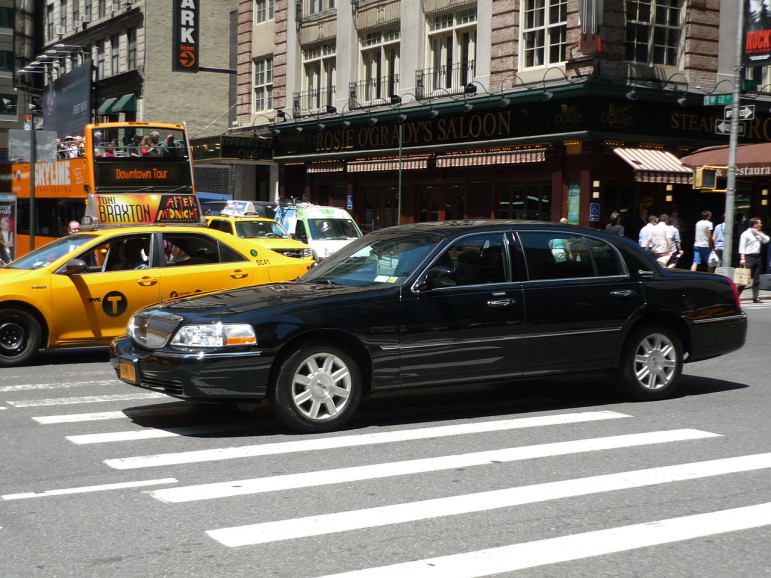
Jason Lawrence
One of New York City’s defining features is its vibrant local economy. It is a place of small stores and sidewalks, where we buy goods and services from businesses owned by our neighbors. Yet the proliferation of new market entrants with big-box business models are weakening our local economy and eroding the character of borough communities.
Uber and Lyft are akin to big-box stores New York City has traditionally blocked from entering the city, for good reason. These retail giants gain success at the expense of small businesses. Chicago’s struggling West Side learned the hard way when Walmart came in and promised to bring jobs to the cash-strapped community. Within two years, 82 local stores went out of business. Instead of growing Chicago’s retail economy, Walmart simply overtook it – absorbing sales from other city stores, and shuttering dozens of them in the process.
Chicago’s tale is playing out in NYC, but instead of mom-and-pop shops, it is small livery bases, traditionally known as community car services, that are being forced out of the market. Many are owned by immigrants and minorities whose hard work and dedication helped their communities to become established.
Countless livery bases have closed since Uber and Lyft entered the marketplace – and the New York City Taxi and Limousine Commission (TLC) has been a culprit. The TLC has for years allowed companies like Uber and Lyft to do business outside the regulatory framework, while all existing businesses have had to comply with a costly set of 137 rules.
The TLC has finally acknowledged that companies like Uber and Lyft must be forced to play fairly and by the rules. The TLC has proposed a major overhaul of rules that govern for-hire vehicles (FHV), and companies like Uber and Lyft would now be required to comply with them. The idea is good, but the devil is in the details. If the rules are allowed to pass as proposed, small community bases would continue on their current path to the same fate: They may go out of business.
The proposed rules – to be discussed at a May 28, 2015 TLC public hearing – are a problem for small bases because they would mandate payment of additional taxes and generally increase the cost of doing business to meet new requirements.
The 40 pages of revised regulations would create the need for many bases – particularly all those headed by immigrant families – to hire legal teams to ensure they are in compliance. Additionally, the TLC wants livery bases to pay $1,000 for the ability to use an app to have customers book rides. This amounts to a double “tax” since bases already have to pay $500 for the right to have passengers book rides.
In the long run, Uber and Lyft will prove to be fair-weather friends. They operate for profit only and have no community-based interest. Our communities and neighborhoods deserve better. The decline of local livery bases is not inevitable, nor is it simply the result of free market forces. The actions of policymakers, and, in particular, government regulators, are critical to ensuring that community-based car services continue to thrive.
We hope that the TLC recognizes the impact that overhauling these rules will have on the industry – and takes measures to ensure the health of local livery bases.
Steven Shanker is counsel to the Livery Roundtable, Inc.








